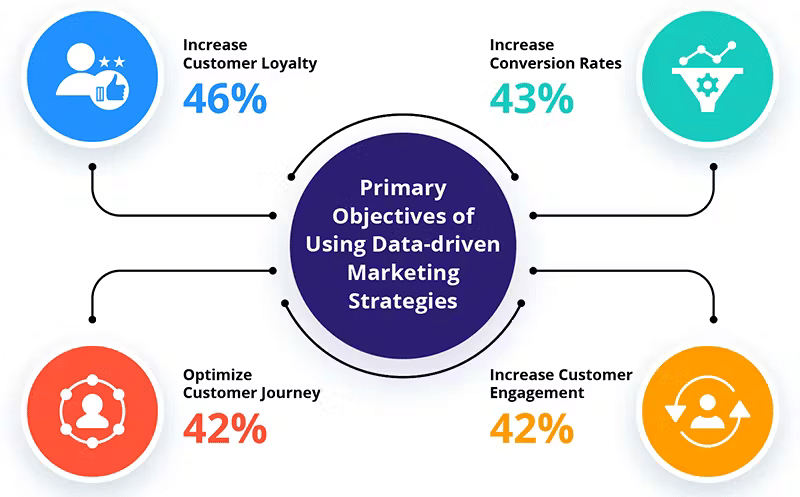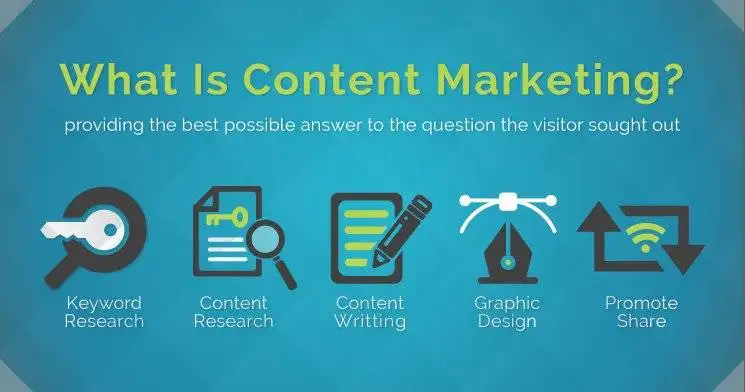- techstudiohub07@gmail.com
- Cabin No 404, 4th Floor, SCO:21 Classic Business Centre, Feroz Gandhi Market, Jila Kacheri Area, Model Gram, Ludhiana, Punjab 141001
Leveraging Data Analytics for Digital Marketing

Leveraging Data Analytics for Digital Marketing
Data analytics plays a pivotal role in digital marketing by providing insights that drive decision-making. This blog explores how businesses can leverage data analytics to enhance their digital marketing efforts, the tools available for data analysis, and the benefits of data-driven marketing strategies.
In today’s fiercely competitive landscape, businesses must stay ahead of the curve to succeed. And with the vast amounts of customer data available, digital marketing analytics has become an essential tool for organizations to inform their marketing efforts, increase their marketing return on investment, and gain a competitive edge. However, despite the promise of improved precision and performance, many businesses struggle to effectively implement analytics, often spreading it thin across the marketing department or failing to integrate it fully into their overall strategy.
To fully realize the benefits of digital marketing analytics, businesses must adopt a holistic and integrated approach. By leveraging the power of inbound marketing analytics, organizations can develop a clear vision, create strategic initiatives, and build the capabilities needed to create real value and remain innovative. In fact, according to recent studies, a vast majority of marketing leaders base their decisions on data analytics, with competitive insights cited as the most critical factor in supporting marketing initiatives and strategic decisions.
In this article, we’ll explore why digital marketing analytics matters to your business, the benefits of adopting an integrated approach, and how you can leverage analytics to improve your marketing efforts, attract and retain customers, and achieve long-term success.
What Is Digital Marketing Analytics and How It Can Benefit Your Business
Digital marketing analytics is the process of measuring, analyzing, and interpreting data collected from various digital marketing channels, such as social media, email, website traffic, and search engine optimization (SEO). It involves using tools and techniques to understand customer behavior, preferences, and patterns to optimize marketing efforts, improve ROI, and drive growth.
Digital marketing analytics can help businesses answer key questions such as what marketing channels are generating the most traffic, which campaigns are driving conversions, and what content resonates most with customers. It can also help identify areas of improvement and opportunities for growth, such as optimizing website design, refining target audiences, and developing personalized content strategies.
To effectively leverage digital marketing analytics, businesses need to collect and integrate data from multiple sources, and use powerful tools to analyze and visualize this data. This requires a mix of technical skills and marketing knowledge, as well as a deep understanding of the tools and methodologies available.
In today’s digital age, digital marketing analytics is critical for businesses that want to stay competitive and succeed in the marketplace. By leveraging data insights, businesses can create targeted, personalized marketing campaigns that resonate with customers, improve ROI, and drive growth.
Top Benefits of Marketing Analytics for Your Digital Strategy
One of the main advantages of digital marketing analytics is that it allows businesses to track the performance of their digital campaigns in real-time. This means that they can quickly identify what’s working and what’s not, and make adjustments accordingly. For example, if a business notices that a particular ad campaign is not generating the desired results, they can tweak the messaging or targeting to improve its effectiveness.
Another advantage of using digital marketing analytics is that it helps businesses understand their audience better. By analyzing data such as website traffic, social media engagement, and email open rates, businesses can gain insights into who their customers are, what they’re interested in, and how they prefer to interact with brands online. This information can then be used to create more personalized and targeted marketing campaigns that resonate with customers on a deeper level.
Overall, implementing digital marketing analytics into your overall digital strategy can help you make more informed decisions, optimize your campaigns for better results, and gain a deeper understanding of your audience. With so many powerful tools and techniques available today, there’s never been a better time to start leveraging the power of data-driven insights in your business.
Bottom-Line Advantages of Implementing Digital Marketing Analytics
Here are a few advantages of implementing digital marketing analytics into overall digital strategy:
- Real-time tracking of campaign performance
- Ability to quickly identify what’s working and what’s not
- Improved ability to make informed decisions based on data insights
- A better understanding of customer behavior and preferences
- Creation of more personalized and targeted marketing campaigns
- Optimization of campaigns for better results
- Increased ROI from digital marketing efforts
- Enhanced ability to measure the success of campaigns against KPIs
- Identification of new opportunities for growth and expansion
- Improved overall efficiency and effectiveness of the digital strategy.
By leveraging the power of digital marketing analytics, businesses can gain valuable insights into their online presence, customers, and market trends, ultimately leading to better decision-making and business outcomes.






